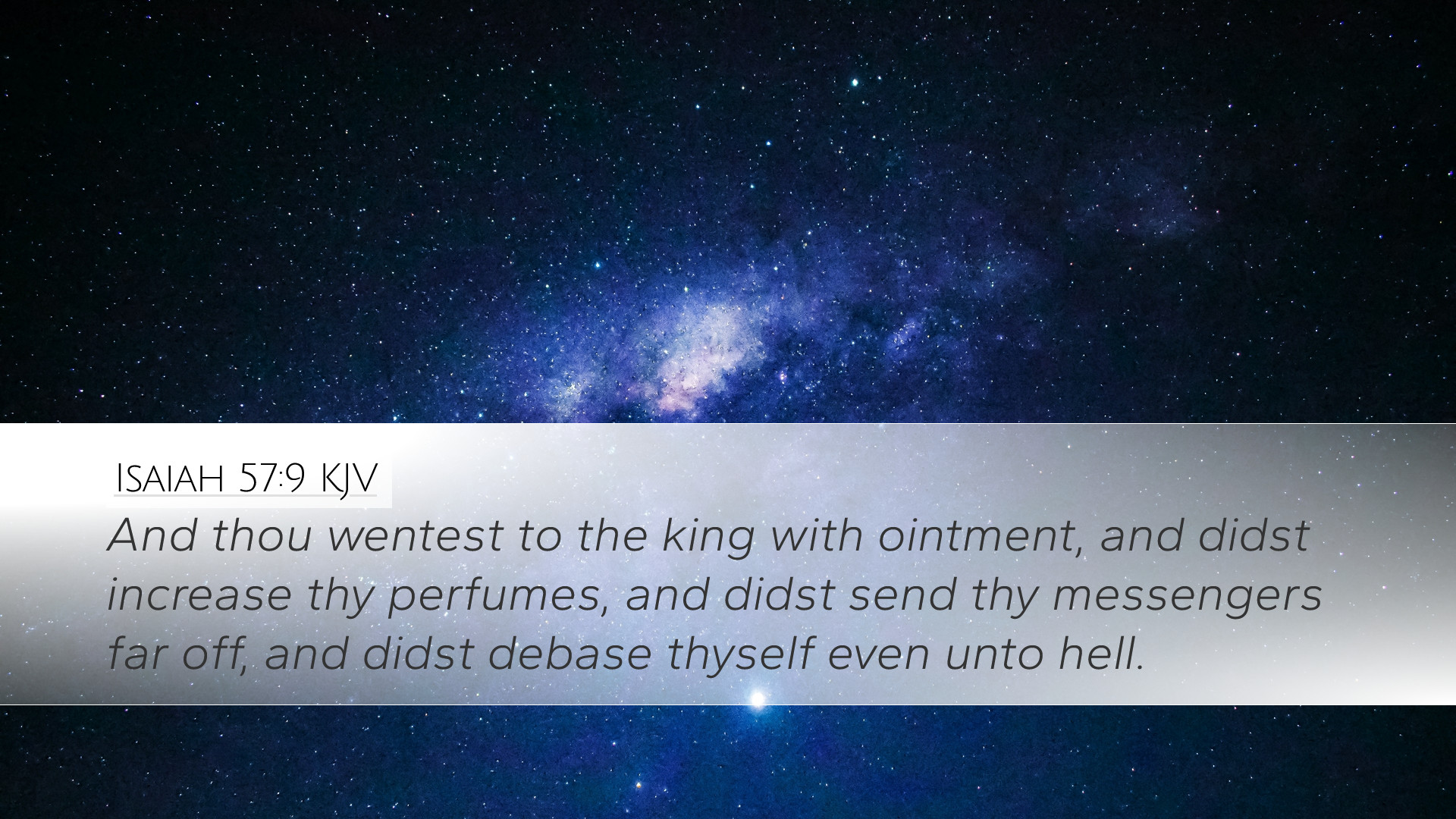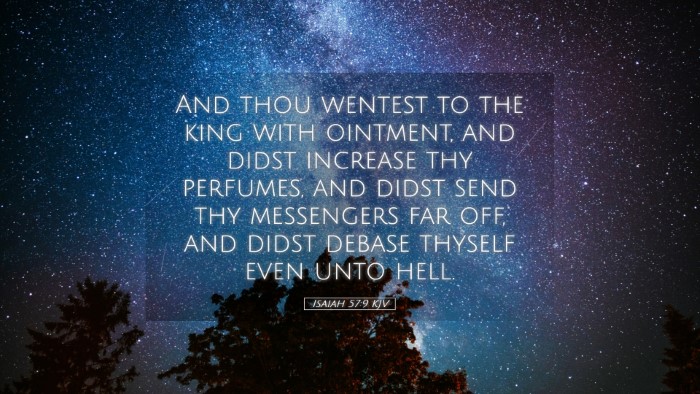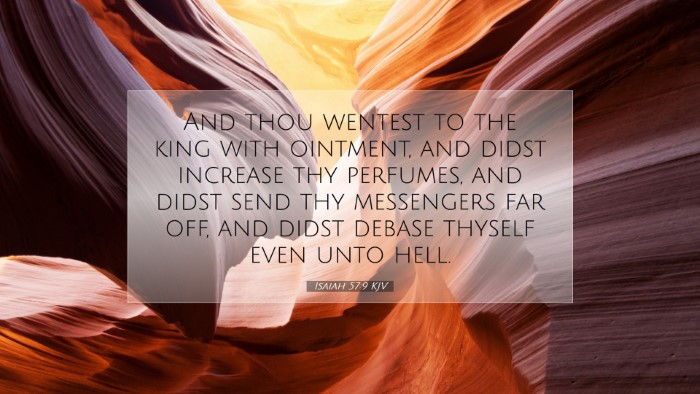Commentary on Isaiah 57:9
Verse: "And thou wentest to the king with ointment, and didst increase thy perfumes, and didst send thy ambassadors far off, and didst debase thyself even unto hell."
Introduction
Isaiah 57:9 offers a profound insight into the spiritual state of the people of Israel. The verse encapsulates the themes of idolatry, spiritual degradation, and the pursuit of earthly alliances that ultimately lead to a disconnection from God. Renowned commentators such as Matthew Henry, Albert Barnes, and Adam Clarke provide rich insights into this scripture, highlighting its implications both for ancient Israel and for contemporary readers. Below we explore several dimensions of the verse, drawing on these commentaries.
The Context of Isaiah 57
In the broader context of Isaiah 57, the prophet Isaiah addresses the backsliding nature of Israel, lamenting their abandonment of Yahweh in favor of foreign alliances and idol worship. The preceding verses emphasize God's promise of comfort and restoration for the humble and contrite, highlighting the stark contrast with the waywardness depicted in verse 9.
Analysis of Key Phrases
1. "Thou wentest to the king with ointment"
Matthew Henry emphasizes that the act of going to a king with ointment symbolizes seeking favor and reliance on worldly powers and royalty. The ointment can represent offerings made to gain political alliances rather than devotion to God.
2. "Didst increase thy perfumes"
Albert Barnes suggests that increasing perfumes signifies the extravagant attempts to please both earthly kings and idols, indicating the Israelites’ misplaced trust. This pursuit of luxury reflects their longing for worldly approval over divine partnership.
3. "Sent thy ambassadors far off"
Adam Clarke interprets the sending of ambassadors as a metaphor for reaching out to foreign nations for help. It underscores Israel's desire to form alliances with nations like Egypt and Assyria, which the prophets repeatedly warned against.
4. "Didst debase thyself even unto hell"
This phrase encapsulates the ultimate consequence of their actions. Henry notes it depicts the spiritual degradation and dishonor that befalls those who forsake God for superficial gains. It indicates a complete moral and spiritual fall.
Theological Implications
- Idolatry vs. Faithfulness: The pursuit of idols and earthly powers over the faithful worship of God illustrates a timeless struggle in the human heart. It warns against the dangers of allowing anything to take the place of God, a theme resonating throughout Scripture (e.g., Exodus 20:3).
- Spiritual Adultery: The language of seeking foreign alliances is often framed as spiritual adultery in Scripture. Barnes and Clarke suggest that the behavior of Israel represents a breach of covenant relationship with God, paralleling the language of marital unfaithfulness.
- The Cost of Disobedience: The final phrase reflects the far-reaching consequences of abandoning God’s ways. It serves as a clear warning to both the original audience and modern believers of the dangers that come with spiritual compromise.
Pastoral Applications
For pastors and ministry leaders, Isaiah 57:9 serves as a poignant reminder of the need for vigilance in spiritual leadership. The dynamics of faithfulness, idolatry, and reliance must be addressed regularly in congregational life:
- Promotion of True Worship: Churches must emphasize the importance of true worship that is not distracted by worldly preferences and alliances.
- Accountability in Leadership: Spiritual leaders should hold themselves accountable to pursue God’s counsel rather than seeking approval from earthly authorities.
- Teaching about Idolatry: Addressing contemporary forms of idolatry, such as materialism or political affiliations, is essential in maintaining a pure faith.
Final Thoughts
The verse calls us to reflect on where our allegiances lie. Henry, Barnes, and Clarke collectively provide timeless wisdom on the need for humble reliance on God. May we heed the warning inherent in Isaiah 57:9, turning away from all forms of idolatry to embrace a life radically committed to our Creator.


